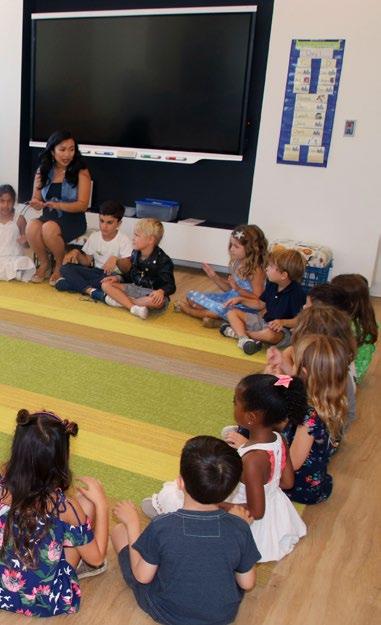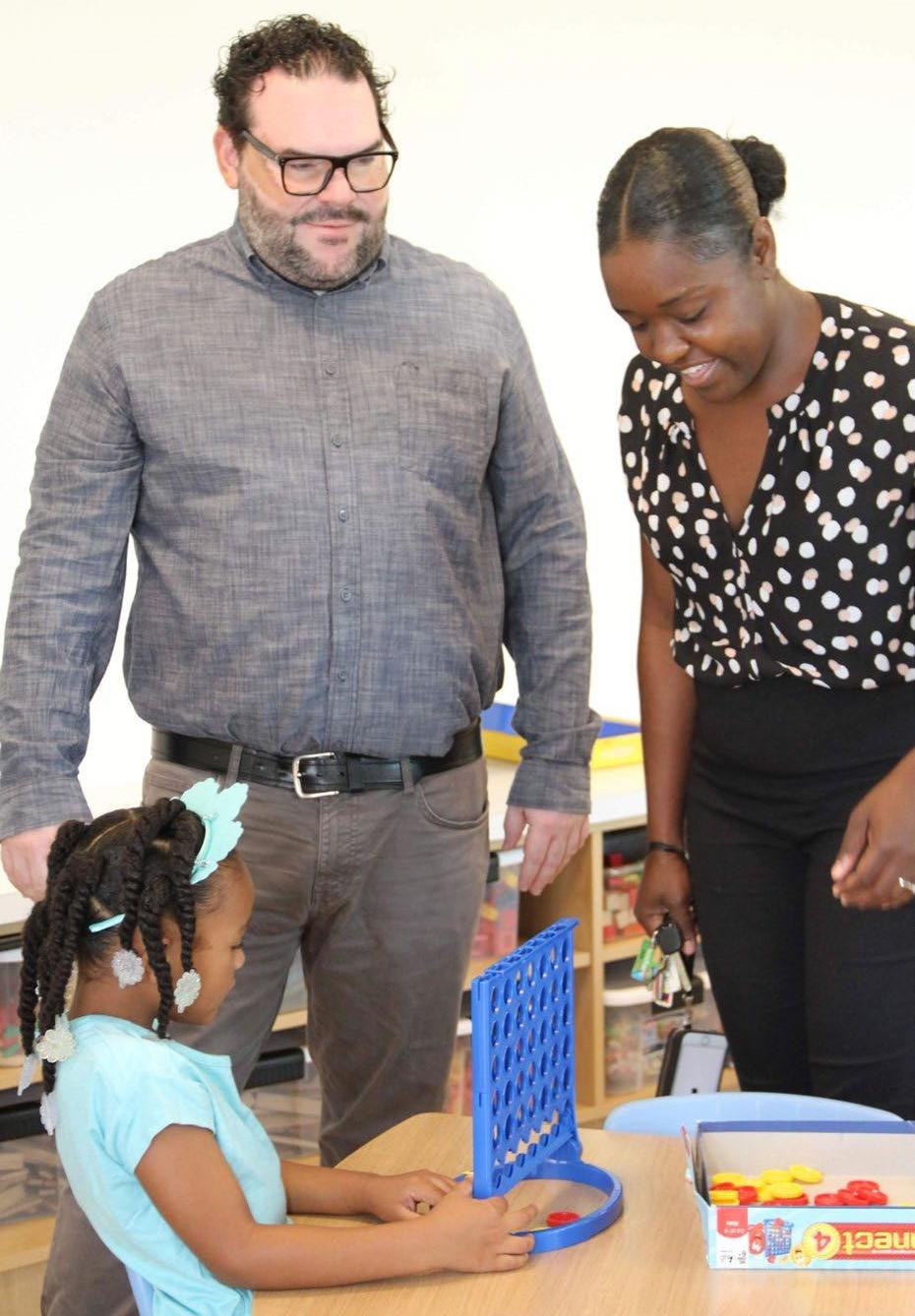
3 minute read
Kindergarten Is Special
Kindergarten at The Center is where Early Childhood and Elementary Meet
We make space for what 5- and 6-year-olds need to do their very best thinking, learning, and living. In Kindergarten, we introduce an academic program that sets the stage for the challenging curriculum and high expectations in the coming elementary years.
Our Class Community Expands
Each year, children from our Early Childhood 2 classes matriculate to our Kindergarten program, eager to be joined by newly enrolled children (who make up about one third of the Kindergarten class). Because the children who join The Center new in Kindergarten are great matches for our program, academically, socially, and in their interests, and because our Center community is so welcoming, newly enrolled children and their families quickly become an irreplaceable part of their class and The Center.
At The Center, children form the bonds that will become deeper and more meaningful each day of their next seven years together.
Our Kindergarten Day is Intentionally Designed
Our daily and weekly schedules for Kindergarten are designed to teach, practice, and extend:
• Independence and collaboration • Choice and decision-making • Self-regulation • Phonics, early literacy, and reading readiness • Math and number sense • Art and Music • Technology skills and application • Social Studies • Self-advocacy and social justice • Physical fitness and growth • How to be a Friend • Mindfulness • Classroom expectations
Our Kindergartners Learn, Move, and Play
As the first year of our elementary program, we recognize that Kindergarten children learn best when they have time each day to make choices for themselves and direct their own play. The cognitive, social, and emotional benefits of play alongside an academic program are clear, so our Kindergartners start each day with a play period before beginning their academic day.
We know that children (and adults!) benefit physically, cognitively, and socially from physical education and activity. In addition to their academic program and full specialist curriculum, our Kindergarten students have daily PE classes as we prioritize their collaborative skills, motor development, and well-being!
Team Teaching
At the heart of CEE’s educational program is the team teaching model. This approach allows for more interaction between teachers and students, as it makes for a smaller student-to-teacher ratio and a more intimate learning environment. The team teaching model also allows for the two master co-teachers (along with a third teacher in Toddler through Kindergarten) to communicate about each child’s progress, giving two informed points of view from two different professionals about each and every child. This is a strong benefit for students, parents, teachers, and administrators. Students observe two adults modeling a collaborative working relationship while providing multiple adult connections for each child.
Class Sizes 2 classes per grade Toddler-5th grade. 3 class sections in 6th grade. •Toddler: 17 children & 3 teachers •Early Childhood: 22 children & 3 teachers •Kindergarten: 30 children & 3 teachers (2 master teachers & 1 teaching assistant) •1st-5th grades: 30 children & 2 teachers •6th grade: 20 children/section •Children attend their specialist classes in groups of 15 children.

Our class size of 30 at Elementary is intentional and allows students to have many opportunities to collaborate and partner with their classmates in many different ways. We believe diversity of thought is an incredibly important component of a child’s education. Having a range of peers for students to connect with throughout the school day is a key goal for both academic and social emotional learning. In an effort to prepare our 6th graders for middle school, we have departmentalized the 6th grade program with teachers specializing in the core academic subjects of Math, Language Arts, Social Studies, and Science.
Our Learning Specialists and our Elementary Math Specialist also support small group work, providing even more expertise and differentiation for students.










